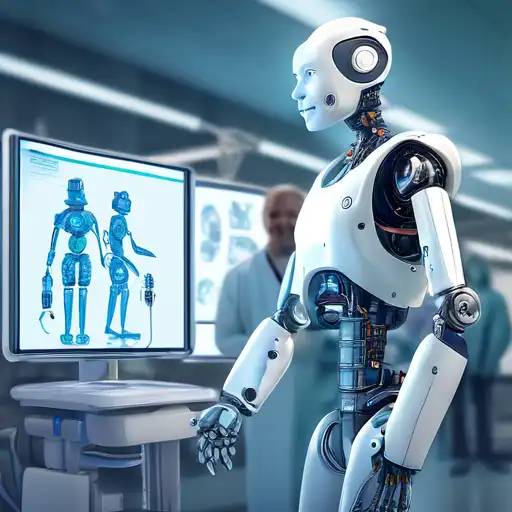The Dawn of a New Era in Healthcare
The integration of robotics into healthcare is not just an advancement; it's a revolution. With the ability to perform complex surgeries, assist in rehabilitation, and even manage patient care, robotics is setting a new standard in medical excellence. This transformative technology is enhancing precision, reducing recovery times, and opening doors to treatments that were once deemed impossible.
Revolutionizing Surgical Procedures
One of the most significant contributions of robotics in healthcare is in the realm of surgery. Robotic-assisted surgery allows for unparalleled precision, minimizing incisions and reducing patient trauma. This leads to faster recovery times and less post-operative pain. Hospitals worldwide are adopting robotic systems, such as the Da Vinci Surgical System, to improve outcomes in procedures ranging from hysterectomies to prostatectomies.
Enhancing Patient Care and Rehabilitation
Beyond the operating room, robotics plays a pivotal role in patient care and rehabilitation. Robotic exoskeletons are helping individuals with spinal cord injuries regain mobility, while robotic prosthetics are offering amputees a new lease on life. These innovations are not just about physical support; they're about restoring hope and independence to patients.
Streamlining Hospital Operations
Robotics is also transforming hospital logistics. Automated guided vehicles (AGVs) are being used to transport supplies, medications, and even meals, reducing the workload on staff and minimizing human error. This efficiency allows healthcare professionals to focus more on patient care, ensuring a better overall experience for everyone involved.
The Future of Robotics in Healthcare
As technology advances, the potential applications of robotics in healthcare are boundless. From nanorobots that can target and destroy cancer cells to AI-driven diagnostic tools, the future is bright. The key to unlocking this potential lies in continued research, investment, and collaboration between technologists and medical professionals.
In conclusion, robotics in healthcare is more than just a game changer; it's a lifeline. By embracing these innovations, we can look forward to a future where medical care is more effective, efficient, and accessible to all. The journey has just begun, and the possibilities are endless.
